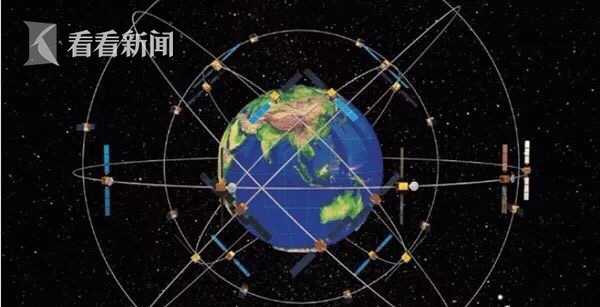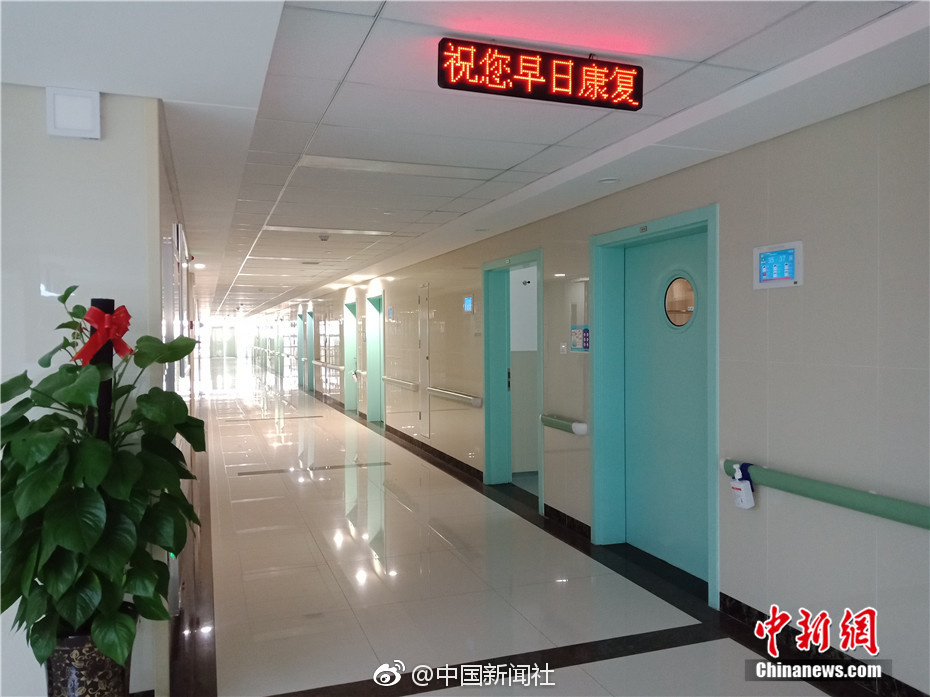
The five functional modules of the operating system are processor management, memory management, device management, file management and operation management. Processor management The most basic function of processor management is to process interrupt events. After configuring the operating system, various events can be processed.
The functions of the computer operating system include: processor management, memory management, device management, file management, job management and other functional modules. Processor management. The most basic function of processor management is to handle interrupt events. The processor can only detect interrupt events and generate interrupts and cannot process them.
Storage management is divided into several functions: storage allocation, storage sharing, storage protection, and storage expansion.Equipment management has the following functions: equipment allocation, equipment transmission control, and equipment independence. File management: file storage space management, directory management, file operation management, file protection.
The operating system should usually include the following five functional modules: (1) Processor management. When multiple programs are running at the same time, solve the problem of processor (cpu) time allocation. ( 2) Operation management. The program to complete an independent task and its required data constitute a task.
The function of the operating system is mainly reflected in the management of computer resources - microprocessors, memory, external devices, files and tasks. The operating system sets this management function into the corresponding program management module, and each management module is responsible for a certain function.That is, the five functions of the operating system.
The operating system has five functions: processor management: mainly controls and manages the work of the CPU. Storage management: mainly carry out memory allocation and management device management: mainly manage basic input and output device file management: responsible for the organization, storage, operation and protection of computer files, etc.

There are the following types of management systems: the management system of the finished product set. This kind of system is a stereotyped management system, which makes a small number of functional adjustments to the software through the parameter settings of the software.
Transaction Processing System (TPS): Operators and supervisors are used to input transactions, events, sort, list, merge updates, output detailed reports, lists and summaries, etc. Management Information System (MIS): Middle managers are used to input general transaction data and simple models to process routine reports.
Adgecal management system Academic management system is one of the most core management systems of the school, which is responsible for arranging and managing the school's teaching activities. It includes curriculum setting, teaching plan, teacher arrangement, examination management and other contents.
VMware vSphere: It is a virtualization management platform that can be used to manage virtual machines, storage and networks, etc. Nagios: It is an open source network monitoring system that can be used to monitor network devices, servers and applications, etc.
Financial subsystem: providing the function of financial management information; Decision support subsystem: make the logistics information system reach a higher level.
ERP management system brand Youyou, Jindie International Software, Wave Software, Dingjie Software, Zhenghang Software. Use friends.
1. System management refers to the information technology system that manages enterprises, and file management is one of the five major functions of the operating system.First, network management refers to the centralized management of resources on the network by network administrators through network management programs.
2. System Management regards organizational components as interrelated and interdependent systems, so it advocates applying the system concept to the management concept.
3. System management refers to the process of maintaining, managing and monitoring computer systems. As an important part of enterprise informatization construction, the importance of computer system management cannot be ignored.
TNT Sports-APP, download it now, new users will receive a novice gift pack.
The five functional modules of the operating system are processor management, memory management, device management, file management and operation management. Processor management The most basic function of processor management is to process interrupt events. After configuring the operating system, various events can be processed.
The functions of the computer operating system include: processor management, memory management, device management, file management, job management and other functional modules. Processor management. The most basic function of processor management is to handle interrupt events. The processor can only detect interrupt events and generate interrupts and cannot process them.
Storage management is divided into several functions: storage allocation, storage sharing, storage protection, and storage expansion.Equipment management has the following functions: equipment allocation, equipment transmission control, and equipment independence. File management: file storage space management, directory management, file operation management, file protection.
The operating system should usually include the following five functional modules: (1) Processor management. When multiple programs are running at the same time, solve the problem of processor (cpu) time allocation. ( 2) Operation management. The program to complete an independent task and its required data constitute a task.
The function of the operating system is mainly reflected in the management of computer resources - microprocessors, memory, external devices, files and tasks. The operating system sets this management function into the corresponding program management module, and each management module is responsible for a certain function.That is, the five functions of the operating system.
The operating system has five functions: processor management: mainly controls and manages the work of the CPU. Storage management: mainly carry out memory allocation and management device management: mainly manage basic input and output device file management: responsible for the organization, storage, operation and protection of computer files, etc.

There are the following types of management systems: the management system of the finished product set. This kind of system is a stereotyped management system, which makes a small number of functional adjustments to the software through the parameter settings of the software.
Transaction Processing System (TPS): Operators and supervisors are used to input transactions, events, sort, list, merge updates, output detailed reports, lists and summaries, etc. Management Information System (MIS): Middle managers are used to input general transaction data and simple models to process routine reports.
Adgecal management system Academic management system is one of the most core management systems of the school, which is responsible for arranging and managing the school's teaching activities. It includes curriculum setting, teaching plan, teacher arrangement, examination management and other contents.
VMware vSphere: It is a virtualization management platform that can be used to manage virtual machines, storage and networks, etc. Nagios: It is an open source network monitoring system that can be used to monitor network devices, servers and applications, etc.
Financial subsystem: providing the function of financial management information; Decision support subsystem: make the logistics information system reach a higher level.
ERP management system brand Youyou, Jindie International Software, Wave Software, Dingjie Software, Zhenghang Software. Use friends.
1. System management refers to the information technology system that manages enterprises, and file management is one of the five major functions of the operating system.First, network management refers to the centralized management of resources on the network by network administrators through network management programs.
2. System Management regards organizational components as interrelated and interdependent systems, so it advocates applying the system concept to the management concept.
3. System management refers to the process of maintaining, managing and monitoring computer systems. As an important part of enterprise informatization construction, the importance of computer system management cannot be ignored.
UEFA Champions League standings
author: 2025-01-09 09:30App to watch Champions League live free
author: 2025-01-09 07:37Hearthstone Arena class tier list 2024
author: 2025-01-09 10:03Hearthstone arena deck Builder
author: 2025-01-09 08:13 Casino Plus login register
Casino Plus login register
212.56MB
Check Free sports events uefa champions league app android
Free sports events uefa champions league app android
857.31MB
Check TNT Sports
TNT Sports
557.94MB
Check UEFA live free
UEFA live free
732.29MB
Check TNT Sports
TNT Sports
723.58MB
Check DigiPlus Philippine
DigiPlus Philippine
248.44MB
Check UEFA live free
UEFA live free
946.47MB
Check UEFA Europa League
UEFA Europa League
734.21MB
Check Walletinvestor digi plus
Walletinvestor digi plus
269.86MB
Check Europa League app
Europa League app
433.12MB
Check UEFA Europa League
UEFA Europa League
844.45MB
Check UEFA European championship
UEFA European championship
419.36MB
Check UEFA Champions League live
UEFA Champions League live
693.25MB
Check Casino Plus free 100
Casino Plus free 100
161.41MB
Check App to watch Champions League live free
App to watch Champions League live free
726.39MB
Check Europa League app
Europa League app
133.59MB
Check UEFA Champions League live
UEFA Champions League live
941.48MB
Check Walletinvestor digi plus
Walletinvestor digi plus
843.17MB
Check PAGCOR online casino free 100
PAGCOR online casino free 100
787.89MB
Check UEFA Europa League
UEFA Europa League
637.39MB
Check Hearthstone Arena class tier list 2024
Hearthstone Arena class tier list 2024
758.72MB
Check UEFA live free
UEFA live free
747.73MB
Check Hearthstone arena deck Builder
Hearthstone arena deck Builder
798.78MB
Check Hearthstone Arena class tier list 2024
Hearthstone Arena class tier list 2024
241.35MB
Check casino plus free 100
casino plus free 100
238.99MB
Check UEFA EURO
UEFA EURO
797.96MB
Check TNT Sports
TNT Sports
786.93MB
Check Casino free 100 no deposit
Casino free 100 no deposit
822.23MB
Check PAGCOR online casino free 100
PAGCOR online casino free 100
355.69MB
Check Champions League
Champions League
564.82MB
Check TNT Sports
TNT Sports
535.69MB
Check casino plus free 100
casino plus free 100
253.11MB
Check Hearthstone arena
Hearthstone arena
296.89MB
Check Hearthstone deck
Hearthstone deck
783.32MB
Check bingo plus update today Philippines
bingo plus update today Philippines
632.84MB
Check UEFA Champions League live
UEFA Champions League live
986.59MB
Check
Scan to install
TNT Sports to discover more
Netizen comments More
1303 Arena plus APK
2025-01-09 08:43 recommend
2252 Casino Plus login register
2025-01-09 08:33 recommend
1167 DigiPlus
2025-01-09 08:31 recommend
2913 Arena Plus login
2025-01-09 07:57 recommend
1897 UEFA Champions League live
2025-01-09 07:56 recommend